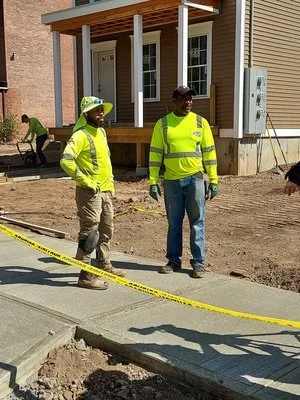In recent years, the expanding U.S. green economy has created a significant opportunity for the City of New Haven to enhance its reputation as a leading environmental workforce destination. The city seeks to achieve this by empowering its residents to acquire new skills and knowledge, thereby channeling “green” dollars into local businesses. To ensure a truly sustainable labor pool and a just transition to a green energy economy, we must make certain that workforce programming is accessible, affordable and readily available to our next generation of contractors.
Read MorePeople of color have historically played a pivotal role in spearheading the environmental justice movement since the 1970s. Black-led organizations continue to fight climate change, serve under-resourced communities and build a greener future.
Read MoreLow-income households continue to receive a disproportionately small amount of energy-savings, despite increased spending by most gas and utility companies on energy-efficiency services, as reported by the American Council for an Energy Efficient Economy (ACEEE) in 2022. EFG covered this topic in detail in this 2023 blog article.
Read MoreEach year in the United States, 44 million tons of CO2 are released into the atmosphere through electronic devices that aren’t being used or are turned off. This equates to approximately 50 large power plants worth of electricity and $19 million. When 68% of all energy produced in the U.S. is being wasted through the processes of production and distribution, these statistics are nothing to ignore. The average household can be expected to spend up to 20% of their monthly energy bill (around $265 annually) on phantom energy through “energy vampires”. This cumulative power could electrify over 11,000,000 homes annually in the U.S.
Read MoreAccess to energy efficiency programs poses greater challenges for rural communities compared to their metropolitan counterparts. The 2018 ACEEE report titled “Reaching Rural Communities with Energy Efficiency Programs” delves into the underlying causes of this issue, shedding light on the barriers faced by rural areas and offering valuable insights into potential solutions. By exploring the report, rural communities can gain a deeper understanding of the factors hindering their access to energy efficiency programs and discover pathways to broaden their availability and participation in these crucial initiatives.
Read MoreNow that spring is here, it is the perfect time to refresh our homes and clear away the clutter that has accumulated over the winter months. While many traditional cleaning products seem effective overall, they often contain harsh and toxic chemicals that can harm both our health and the environment.
Read MoreAs of November 2023, the labor landscape continues to reveal a compelling yet challenging scenario. The Bureau of Labor Statistics underscores a national surplus of 10.7 million available jobs, a staggering contrast to the 6.1 million positions currently filled. This discrepancy, often attributed to the “skills gap,” amplifies the critical need for a skilled workforce aligned with evolving economic trends, particularly in fields related to climate solutions and advancing technologies.
Read More








